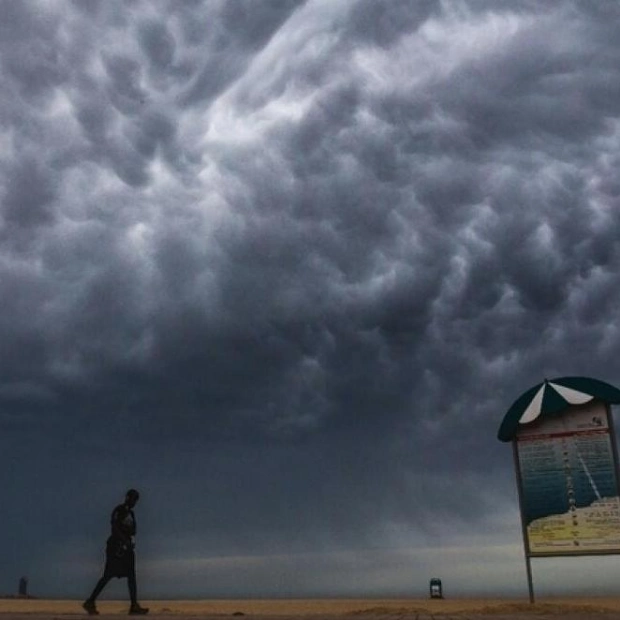People with their pet seek refuge inside a metro station during a Russian military strike, amidst Russia's ongoing assault on Ukraine, in Kyiv on November 28, 2024. — Reuters
Over a million Ukrainians found themselves without power in frigid temperatures on Thursday following a widespread Russian missile and drone attack. Ukraine is preparing for what could be its most challenging winter since the war began almost three years ago, as Moscow intensifies its aerial bombardment and advances on the eastern frontlines.
"There are emergency blackouts across the country due to the enemy's assault on our energy sector. There is no end in sight," stated Sergey Kovalenko, CEO of the Yasno energy supplier. President Volodymyr Zelensky's chief of staff, Andriy Yermak, described Russia's actions as "continuing their tactics of terror," aiming to plunge Ukrainian civilians into darkness and deprive them of heating during the coldest months.
The coordinated missile and drone attack, launched in waves throughout the early hours of Thursday, left more than a million subscribers in Ukraine's west without electricity, hundreds of kilometers from the front lines. Regional officials reported that at least 523,000 subscribers in the Lviv region, 280,000 in the Rivne region, and 215,000 in the Volyn region were cut off. The full extent of the damage was still being evaluated, with Russian drones also targeting Kyiv, Kharkiv, and Odesa, among other regions.
Ukraine's energy ministry confirmed that this was the 11th massive Russian attack on the country's civilian energy infrastructure this year. As the strikes unfolded, Energy Minister German Galushchenko warned that facilities were "under massive enemy attack." These strikes, occurring as temperatures dipped to 0 degrees Celsius in many Ukrainian cities, marked the latest escalation in the nearly three-year conflict.
A senior UN official, Rosemary DiCarlo, recently cautioned that this winter could be the "harshest since the start of the war" due to Russian attacks on Ukraine's energy infrastructure. Both sides have deployed new weapons in an attempt to gain the upper hand ahead of Donald Trump's inauguration as US president in January.
Russia has indicated it is preparing its own response to Ukrainian strikes on its territory using US-supplied ATACMS missiles. Kyiv has launched at least three attacks on Russian border regions with these missiles since receiving permission from the White House. In response to the first strike, Moscow fired a never-before-seen hypersonic ballistic missile at the Ukrainian city of Dnipro, with Russian President Vladimir Putin warning that the nuclear-capable missile could be used against Western countries next.
Trump named staunch loyalist and retired general Keith Kellogg as his Ukraine envoy, tasked with ending the Russian invasion. The incoming president has criticized US aid to Ukraine and claimed he could secure a ceasefire within hours, raising concerns in Kyiv that the US might push for territorial concessions. Kellogg, an 80-year-old national security veteran, co-authored a paper this year advocating for Washington to use military aid as leverage for peace talks.
Concerned about a series of Russian advances on the frontline, the outgoing Joe Biden administration has urged Ukraine to lower the minimum age of conscription from 25 to 18 to address severe manpower shortages. Russia's defense ministry also reported downing 25 Ukrainian drones overnight, including 14 over the southern Krasnodar territory, east of the annexed Crimean peninsula.
Source link: https://www.khaleejtimes.com






